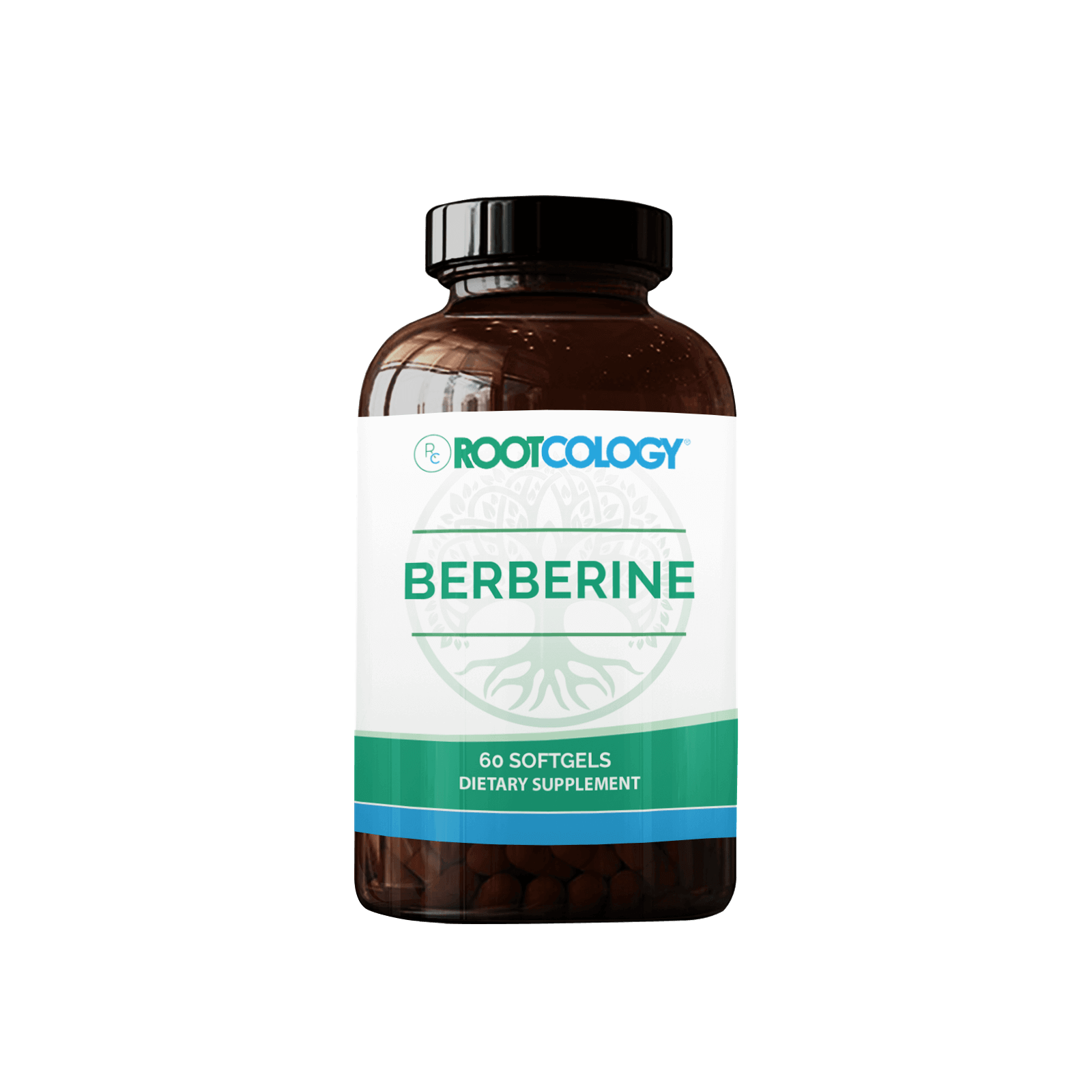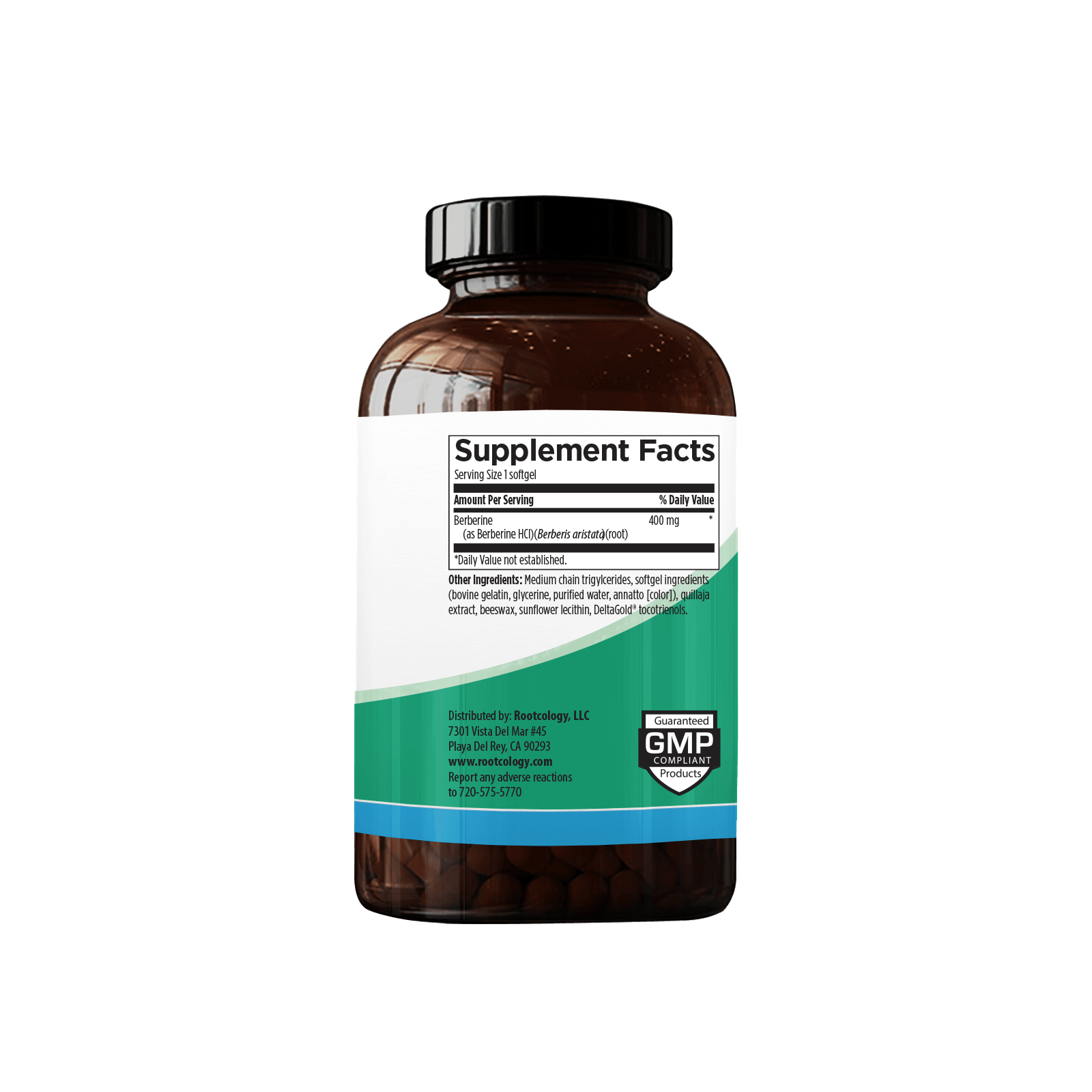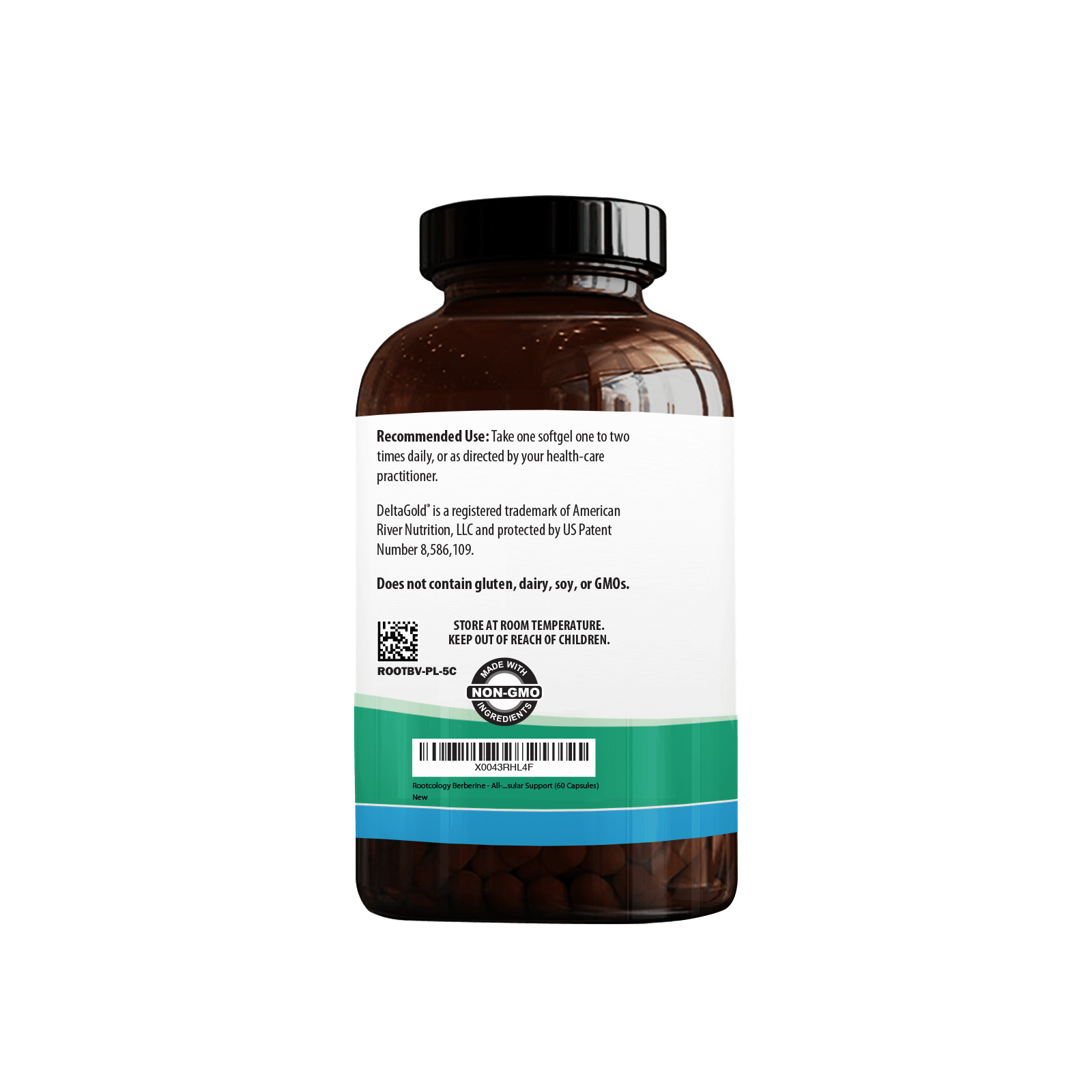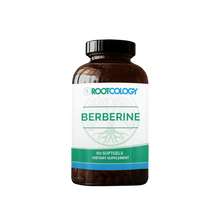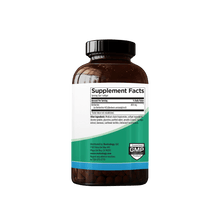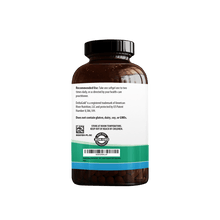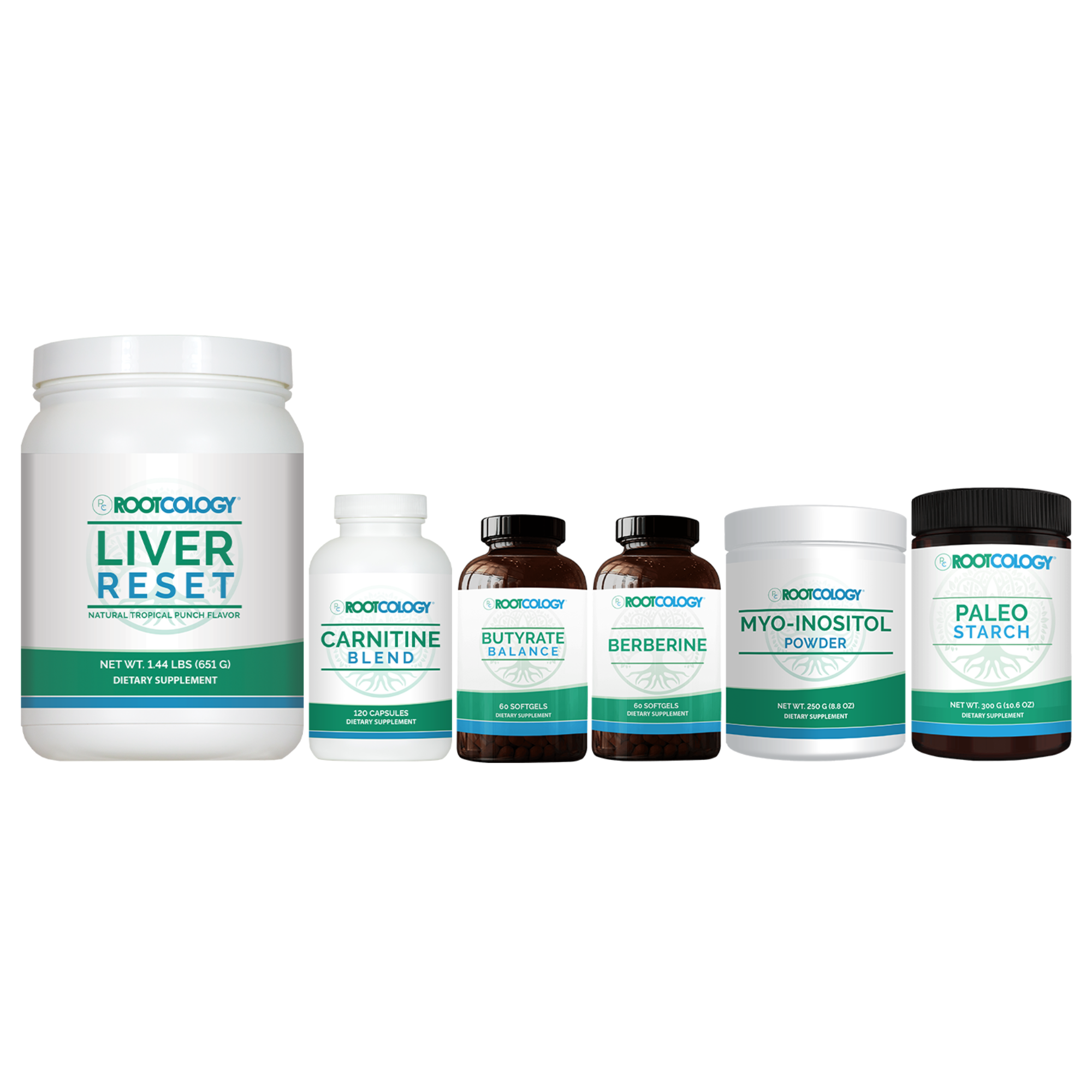What is Berberine?
This Berberine supplement is made from a plant alkaloid extracted from the shrub family Berberis aristata. Berberine has been shown to exhibit potential antimicrobial properties, and may help support healthy blood sugar metabolism.* Rootcology Berberine is designed to be highly bioavailable, using a proprietary blend of medium-chain triglyceride (MCT) oil, non-soy derived lecithin, and tocotrienols, to improve absorption and delivery.
What are the benefits of Berberine?
Berberine may support healthy blood sugar metabolism and insulin sensitivity, healthy lipid metabolism and blood vessels, and a normal response to oxidative stress and inflammation. Berberine may also support digestion and promote healthy microbial balance in the gastrointestinal tract.*
What is the recommended dose?
The recommended dose is one softgel, one to two times per day.
When should I take it?
This supplement should be taken with meals, at breakfast and dinner.
Can it be taken with thyroid medications?
Berberine should be taken at least 30 to 60 minutes away from thyroid medications. High doses of berberine may have thyroid-modulating activity, while doses used clinically may optimize thyroid hormone function due to the effect on the microbiome.* (2, 3) Testing your thyroid hormone levels every 30-90 days to see if a medication adjustment is needed, is recommended.
How long can I take Berberine for?
Berberine has been studied to be safe and effective when used daily for up to three years. Because it has various benefits, the duration you and your practitioner may choose may vary.
For gut health support, berberine is generally used for 2 weeks to 2 months.*
For metabolic health support, berberine may be used long-term. Many practitioners recommend cycling on and off for best results. For example, 8 weeks on, then 2-4 weeks off.*
Are there any side effects that I should be aware of when taking Berberine?
May cause headache, diarrhea, constipation, flatulence, nausea, vomiting, abdominal pain, abdominal distention, and/or a bitter taste in the mouth. In rare cases, skin rashes have been reported.
Consult with a physician before use if pregnant or breastfeeding.
If you have an allergy to bees, do not take this, or any other product containing beeswax. While rare, it is possible to have an allergic reaction. (1)
DO NOT TAKE if taking the following medications: anticoagulant/antiplatelet drugs, antidiabetic drugs, antihypertensive drugs, blood thinners, CNS depressants, cyclosporine, cytochrome P450 substrates (2C9, 2D6, 3A4), dextromethorphan, losartan, metformin, midazolam, pentobarbital, and/or tacrolimus
- Beeswax: Overview, uses, side effects, precautions, interactions, dosing and reviews (no date) WebMD. Available at: https://www.webmd.com/vitamins/ai/ingredientmono-305/beeswax (Accessed: 20 October 2023).
- Maurya H, Dhiman S, Dua K, Gupta G. Pharmacological Effect of Berberine Chloride in Propyl Thiouracil Induced Thyroidal Dysfunction - A Time Bound Study in Female Rats. Recent Pat Drug Deliv Formul. 2016;10(2):165-173. doi:10.2174/1872211310666160321123610
- Han Z, Cen C, Ou Q et al. The Potential Prebiotic Berberine Combined With Methimazole Improved the Therapeutic Effect of Graves’ Disease Patients Through Regulating the Intestinal Microbiome. Front Immunol. 2022;12. doi:10.3389/fimmu.2021.826067
- Och A, Och M, Nowak R, Podgórska D, Podgórski R. Berberine, a Herbal Metabolite in the Metabolic Syndrome: The Risk Factors, Course, and Consequences of the Disease. Molecules. 2022;27(4):1351. doi:https://doi.org/10.3390/molecules27041351
- Natural Medicines Therapeutic Research Collaboration. https://naturalmedicines.therapeuticresearch.com/. Accessed March 1, 2022.
You May Also Like
Questions about Rootcology Products? Email info@rootcology.com and we will get back to you within 24 business hours.




